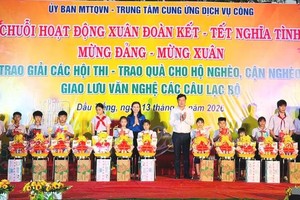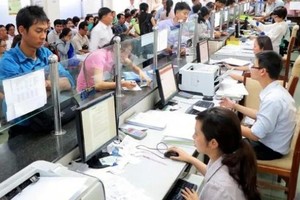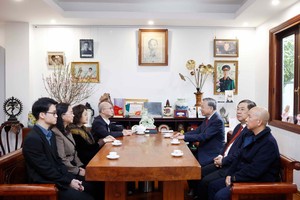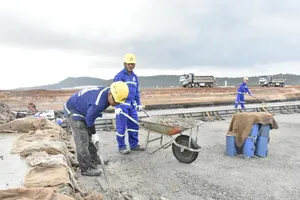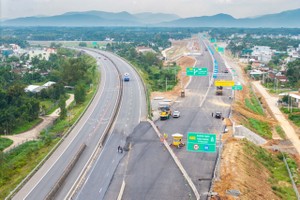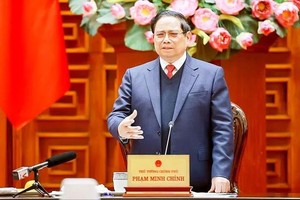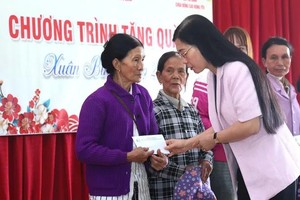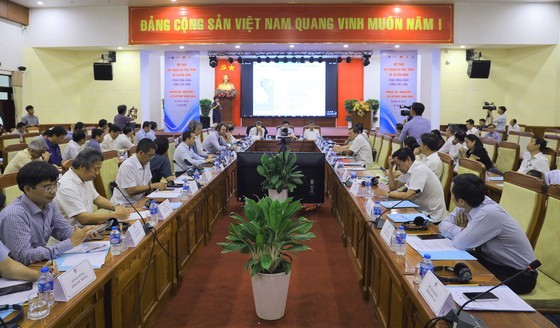 |
At the seminar |
This morning, the Central Economic Commission in collaboration with the Ministry of Construction, the French Development Agency (AFD) - a public financial institution that implements the policy defined by the French Government - and the People's Committee of Hau Giang Province in the Mekong Delta held a seminar on ‘Sustainable urban planning and development in the Mekong Delta’.
The workshop was chaired by Deputy Head of the Central Economic Commission Nguyen Duc Hien, Chairman of the People's Committee of Hau Giang Province Dong Van Thanh and Director of the French Development Agency (AFD) in Vietnam Hervé Conan.
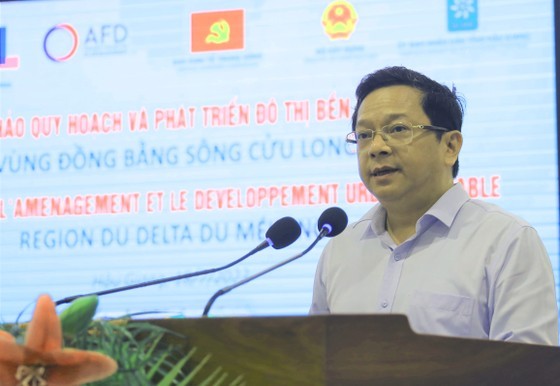 |
Deputy Head of the Central Economic Commission Nguyen Duc Hien |
Speaking at the opening of the workshop, Deputy Head of the Central Economic Commission Nguyen Duc Hien said this is the third seminar in a series of 4 seminars organized by the Central Economic Commission together with the Ministry of Construction, the French Development Agency (AFD) in Vietnam and representatives of regions. The seminar concentrated on the implementation of the Politburo’s Resolution No. 06-NQ/TW on ‘Planning, construction, management and sustainable urban development in Vietnam until 2030, with a vision to 2045" and the Government’s Resolution 148-NQ/CP to implement Resolution 06 of the Politburo.
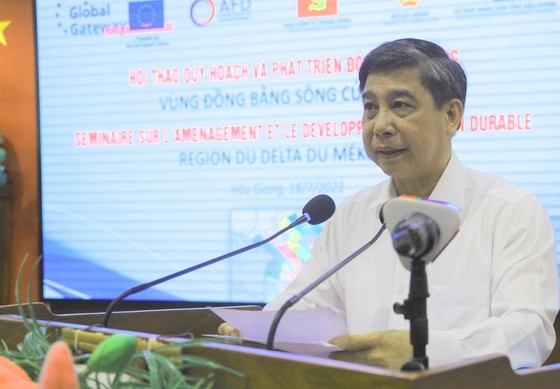 |
Chairman of Hau Giang Provincial People's Committee Dong Van Thanh |
According to him, the country's renovation and urban planning have achieved many important results after more than 35 years. Urbanization and urban development have become an important driving force for the country's socio-economic development. However, the process of urbanization and urban development still has many limitations such as low quality of urban planning, unsustainable urban development causing serious and unresolvable waste of land while environmental pollution in urban areas.
Mr. Dong Van Thanh, Chairman of Hau Giang Provincial People's Committee, expected that the workshop will provide a better understanding of disaster risk management policies and the French government’s integration into planning and territorial development as well as an exchange of local practices in the Mekong Delta from planning to project development based on the experiences of localities and experts while it also helps increase awareness of the culture and innovative practices in this area in the coming time.
Because the Mekong Delta has a particularly important strategic position in terms of socio-economic, ecological environment, national defense and security. The region has a dense network of rivers, canals and canals so it has advantages in developing agriculture and food industry, tourism, and renewable energy.
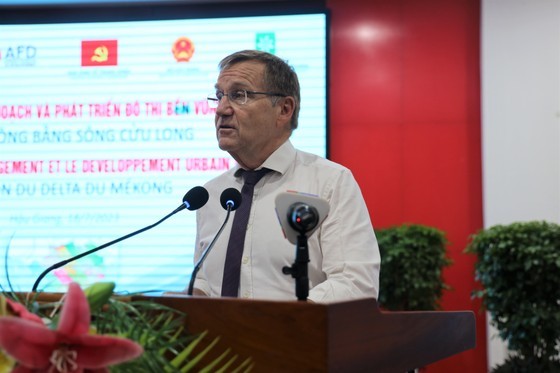 |
Director of AFD Vietnam Hervé Conan |
Moreover, the region is the largest agricultural production basket in Vietnam. The production volume of rice in the Mekong Delta in Vietnam reaches 50 percent of the country’s rice production while the volume of aquaculture accounts for 65 percent of the country’s production and 70 percent of fruits are grown in the Mekong Delta. Roughly 95 percent of rice for exports and 60 percent of fish for export are harvested in the Mekong Delta. Additionally, the region has a convenient position in trade with ASEAN countries and the Mekong Sub-region.
Nevertheless, the region is being heavily affected by natural disasters and climate change. International experts warned that the region is one of the three floodplains with the largest land loss in the world.
Some studies predicted until the end of the 21st century, the sea level will rise from 0.5-1m, causing about 39 percent of the area and 35 percent of the population of the Mekong Delta to be affected. The Mekong Delta is highly likely to face the risk of flooding. Rach Gia City and Ha Tien City in Kien Giang Province, Ca Mau City in Ca Mau Province, Soc Trang City of Soc Trang Province, Vi Thanh City of Hau Giang Province and Can Tho City will possibly be submerged in water.
Mr. Giorgio Aliberti, Ambassador and Head of the Delegation of the European Union to Vietnam affirmed: “The European Union has always been strongly committed to supporting the Government of Vietnam in realizing its sustainable development goals. The establishment of WARM fund is to finance the preparation and implementation of strategic infrastructure investment projects to strengthen Vietnam's resilience to climate change. The practical experience gained from these projects contributes to the promotion of sector-specific policy dialogues with the Government of Vietnam.”
For his part, Mr. Hervé Conan, Director of AFD Vietnam, said that French experts will share their experiences to Vietnam, which is hoped to help policymakers in districts to gain insight and broad perspective about the challenges they face in their own locality. The discussions concentrated on disaster risk management, urban development models and tools corresponding to the three mountainous, coastal and Mekong Delta regions and the necessary local adjustments to adapt to the impacts of climate change.





